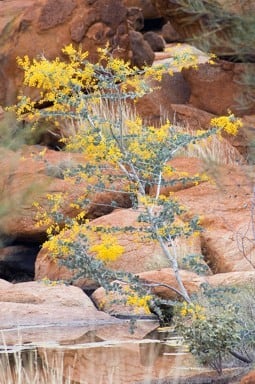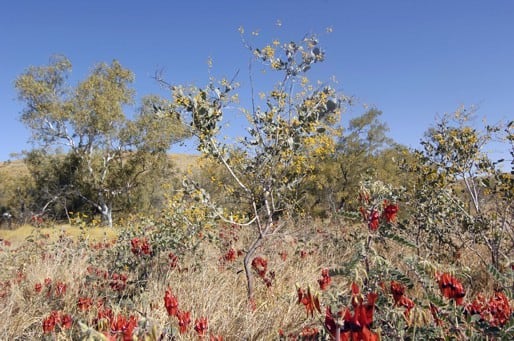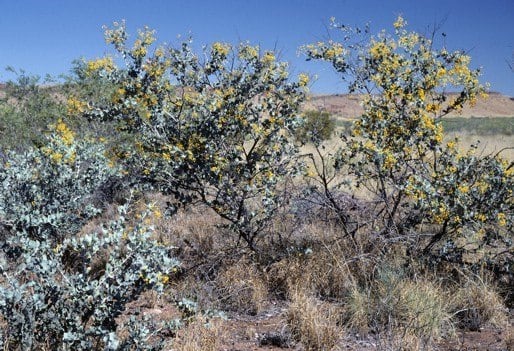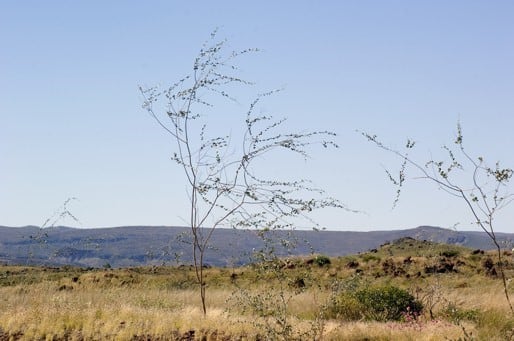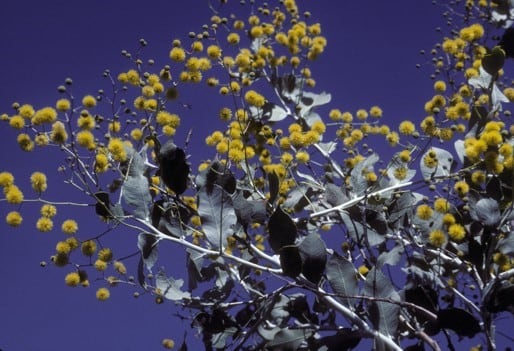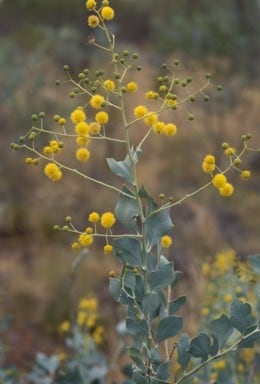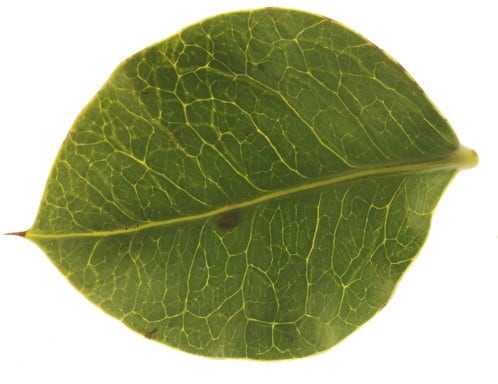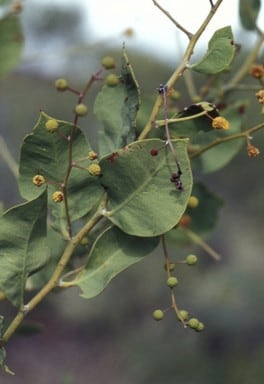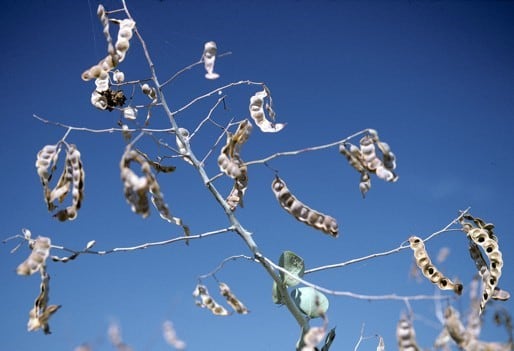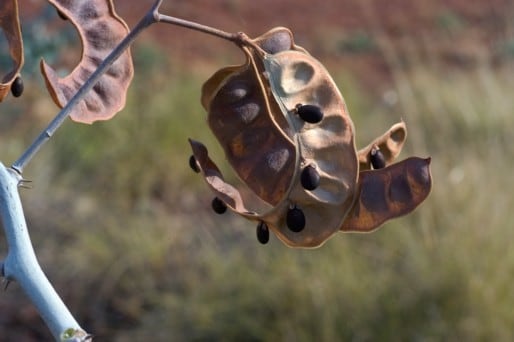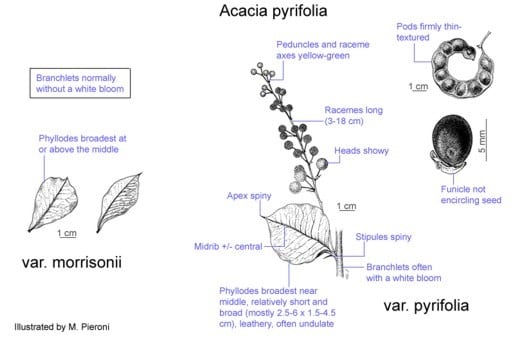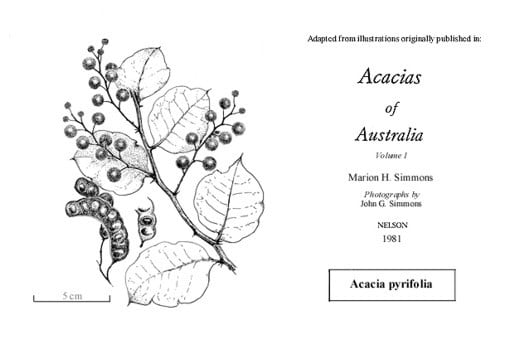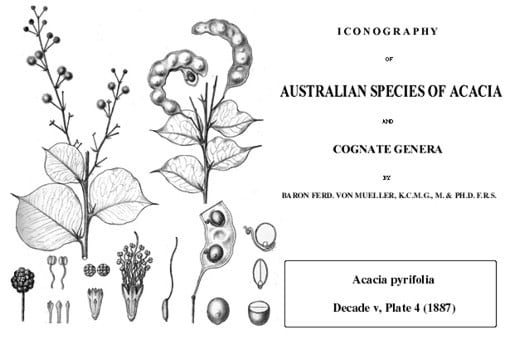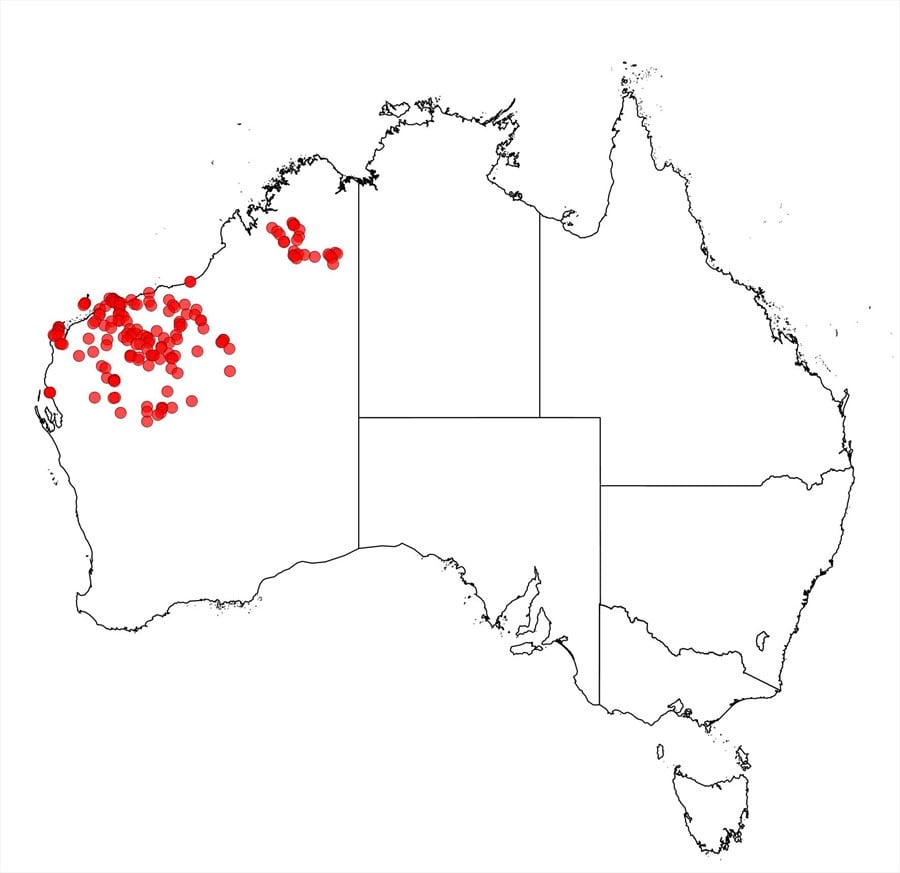Acacia pyrifolia DC. var. pyrifolia
WATTLE
Acacias of Australia
Common Name
Ranji Bush
Family
Fabaceae
Distribution
Widespead from Carnarvon and Meekatharra N to the Pilbara region and Rudall R., and also the southern Kimberley region from near Windjana Gorge to near Halls Creek. It is especially common in the Pilbara where it occurs throughout the region, including some of the off-shore islands.
Description
Straggly and normally openly branched shrub, rarely prostrate. Branchlets often conspicuously pruinose. Stipules 3–8 (–10) mm long, spiny, normally rigid and rather robust, frequently persistent on old wood where phyllodes have fallen. Phyllodes elliptic to oblong-elliptic or orbicular, rarely obovate, mostly 2.5–6 (–7) cm long and 1.5–4.5 cm wide, coriaceous, commonly blue-grey but ranging to glaucous, sub-glaucous or grey-green, occasionally green, variably pruinose.
Phenology
Flowers May–Oct., main flush in July and Aug.
Habitat
Grows principally along watercourses (often with A. bivenosa, A. coriacea subsp. pendens and/or A. trachycarpa) and water-gaining sites where it often forms dense populations. Typically favours clay soils with a pebble surface strew. Variety pyrifolia readily colonises disturbed sites (e.g. road verges) and regenerates well (from seed) following fire.
Specimens
W.A.: 14.5 km S of Exmouth, K.M.Allan 475 (CANB, K, PERTH); Gascoyne R. South, on Great Northern Hwy between Meekatharra and Newman, M.E.Ballingall 1827 (BRI, MEL, PERTH); 10 km from Dampier towards Karratha, B.R.Maslin 2760 (CANB, K, MEL, PERTH); 18.4 km SSW of Flora Valley Stn, R.A.Perry 2495 & M.Lazarides (K, NSW, PERTH).
Notes
Indigenous usage of A. pyrifolia in the Pilbara is discussed in B.R.Maslin et al., loc.cit.
Specimens with non-pruinose branchlets and green, non-pruinose phyllodes are scattered throughout the range of the species (e.g. Burrup Pen.) and are sometimes confused with var. morrisonii. An uncommon, single-stemmed, spindly form with very sparse foliage and pruinose stems occurs in the Pilbara and elsewhere; it resembles the rare A. aphanoclada × pyrifolia var. pyrifolia which has more elongate phyllodes (l:w not above 2 in var. pyrifolia, 4–7 in the hybrid).
FOA Reference
Data derived from Flora of Australia Volumes 11A (2001), 11B (2001) and 12 (1998), products of ABRS, ©Commonwealth of Australia
Author
B.R.Maslin
B.R.Maslin
This identification key and fact sheets are available as a mobile application:
URL: https://apps.lucidcentral.org/wattle/
© Copyright 2018. All rights reserved.
